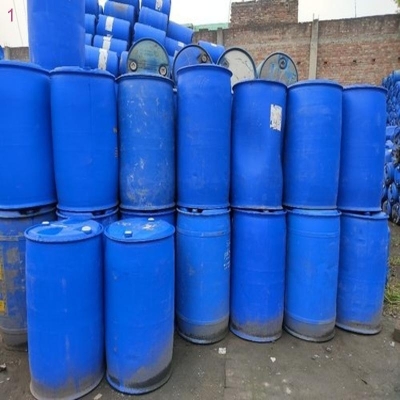-
Categories
-
Pharmaceutical Intermediates
-
Active Pharmaceutical Ingredients
-
Food Additives
- Industrial Coatings
- Agrochemicals
- Dyes and Pigments
- Surfactant
- Flavors and Fragrances
- Chemical Reagents
- Catalyst and Auxiliary
- Natural Products
- Inorganic Chemistry
-
Organic Chemistry
-
Biochemical Engineering
- Analytical Chemistry
-
Cosmetic Ingredient
- Water Treatment Chemical
-
Pharmaceutical Intermediates
Promotion
ECHEMI Mall
Wholesale
Weekly Price
Exhibition
News
-
Trade Service
On June 25, the self-heating fast-charging lithium battery for electric vehicles jointly developed by the Electrochemical Power Center of Pennsylvania State University and the National Engineering Laboratory for Electric Vehicles of Beijing Institute of Technology made new progress, and its results were published in the international academic journal Proceedings of the National Academy of
Sciences.
It is understood that under normal circumstances, when the traditional electric vehicle lithium battery is below 10 °C, the lithium ions in the battery will accumulate and deposit at the carbon cathode, resulting in longer charging time and battery capacity attenuation
.
The research results can achieve 15 minutes per charge at 0°C, ensuring 4500 cycles and only 20% capacity attenuation, and traditional lithium batteries under the same conditions will have 20% capacity attenuation
after 50 cycles.
This new lithium battery adds a thin nickel sheet and a temperature sensing device on the basis of the traditional lithium battery, ensuring that electrons can form a path
through the nickel sheet when the battery temperature is lower than room temperature.
Through the resistive thermal effect of metal nickel, the current can heat the thin nickel sheet, and once the battery temperature rises, it will automatically start the lithium battery electrode reaction and resume normal charge and discharge energy
supply.
The researchers said that the current trial prototype can provide lithium battery manufacturers with improved ideas for using electric vehicles
without being affected by external temperatures, even in cold areas.
On June 25, the self-heating fast-charging lithium battery for electric vehicles jointly developed by the Electrochemical Power Center of Pennsylvania State University and the National Engineering Laboratory for Electric Vehicles of Beijing Institute of Technology made new progress, and its results were published in the international academic journal Proceedings of the National Academy of
Sciences.
It is understood that under normal circumstances, when the traditional electric vehicle lithium battery is below 10 °C, the lithium ions in the battery will accumulate and deposit at the carbon cathode, resulting in longer charging time and battery capacity attenuation
.
The research results can achieve 15 minutes per charge at 0°C, ensuring 4500 cycles and only 20% capacity attenuation, and traditional lithium batteries under the same conditions will have 20% capacity attenuation
after 50 cycles.
This new lithium battery adds a thin nickel sheet and a temperature sensing device on the basis of the traditional lithium battery, ensuring that electrons can form a path
through the nickel sheet when the battery temperature is lower than room temperature.
Through the resistive thermal effect of metal nickel, the current can heat the thin nickel sheet, and once the battery temperature rises, it will automatically start the lithium battery electrode reaction and resume normal charge and discharge energy
supply.
The researchers said that the current trial prototype can provide lithium battery manufacturers with improved ideas for using electric vehicles
without being affected by external temperatures, even in cold areas.







